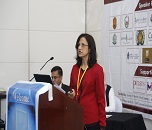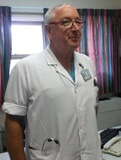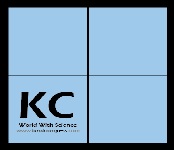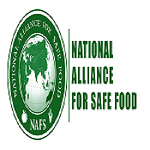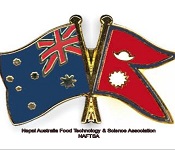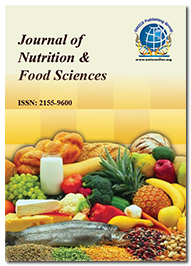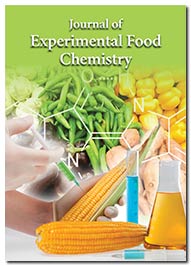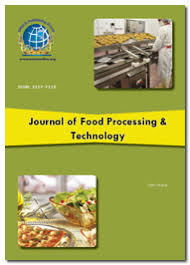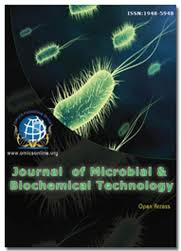Theme: Exploring the Recent Advances in Food Microbiology and Food Chemistry
Food Chemistry Meet 2018
Food Chemistry Meet 2018 invites all the participants from all over the world to attend “11th World Congress on Food Chemistry & Food Microbiology” which is to be held in Dubai,UAE on 30– 31 August. This includes prompt keynote presentations, Oral talks, Poster presentations and Exhibitions.
The goal of this Conference is to unite the International Food science communities to take a fresh look at the key topics and challenges that our field faces. The theme of this Conference is “Exploring the recent advances in Food Microbiology and Food Chemistry”, which means just not to explore the recent advancement rather it could be expanded to all possible ways which will be helpful in more and more advance research in this emerging field. As practitioners, scholars, and citizens we need to work together to explore the possibilities and plan strategically for collective growth of our science, its beneficial applications, and responsible practices. Food technology can be used to advance so many facets of the world today. The application of Molecular Approaches in all aspects of modern Food science field. This conference also focuses on a wide variety of current research on microbes that have both beneficial and deleterious effects on the safety and quality of foods, and are thus a concern of public health.
Why to attend??
The focus of this year’s conference is to connect the global Food Science community by fostering the dialogue between entrepreneurs, business executives, tech practitioners, technology scouts, academics, and investors. Join us for insightful discussions on: advancements in Food technology, Food Microbiology, Food Chemistry for consumer products, engineering environmental sustainability in the circular economy. Conduct presentations, distribute information, meet with current and potential scientists, make a splash with advanced innovations in Food microbiology and food chemistry developments, and receive name recognition at this 2-day event. World-renowned speakers, the most recent techniques, developments, and the newest updates in Food technology and Food-Microbiology and Food-Chemistry and Nutrition are hallmarks of this conference.
Benefits:
- Accepted abstracts will be published in Journal of Nutrition & Food Sciences and Journal of Microbial & Biochemical Technology and provided with DOI
- Global networking: In transferring and exchanging Ideas
- A Unique Opportunity for Advertisers and Sponsors at this International event.
Conference Highlights:
- Food biotechnology and Nutrition
- Food microbiology
- Food chemistry
- Novel food engineering techniques
- Plant and Animal Nutrition
- Livestock nutrition
- Microbial Aspects of Food Quality and Spoilage
- Advanced food packaging technologies
- Advanced food analysis technologies
- Nano Technology in Food Industry
- Food safety and control
- Food Toxicology
- Nutrition psychology
- Mass spectrometry in food technology and Nutrigenomics
- Nutritional Disorder Management
- Food testing and quality control
Track 1: Food Science and Technology
Food Science & technology as a broad spectrum includes many segregations and these are Food microbiology, Food safety, Food biotechnology, Dairy technology, Food chemistry, engineering properties of foods etc. All this aims in making the food products safe, whole some and nutritious. Now we have a wide range of products with lot of advancement and longer shelf life as Ready to Eat, Ready to serve, instant mixes, and instant drink powders.
Now the growth of food and its related industries are sky-scraping all over the world, making huge profits. All this is possible with the technological advancement and increasing demands among the consumers.
Track 2: Food Biotechnology and Nutrition
Food biotechnology is being used in two major ways to enhance human nutrition: to improve global food security by making more food available, especially locally grown and familiar foods in the developing world, and by enhancing the nutritional composition of foods that would interest both the developed and developing world. Food Biotechnology and Nutrition manages matured nourishments and catalyst prepared nourishments assume a day by day part in our life which incorporate curds, dough's, wines and alcohols, nourishment poisons and decay by organisms, new aging to improve wellbeing and well have a place of buyers. Furthermore, there are various on-going tasks to upgrade the diet or wellbeing estimation of nutrition by means of transgene innovation.
Track 3: Food Microbiology
Food microbiology is the study of microorganisms that inhabit, create, or contaminate food, including the study of microorganisms causing food spoilage, pathogens that may cause disease especially if food is improperly cooked or stored those used to produce fermented food such as cheese, yogurt, bread, beer and wine and those useful roles such as producing probiotics. To guarantee wellbeing of food items, microbiological tests, for example, testing for pathogens and deterioration living beings are required. Along these lines the danger of contamination under typical conditions can be examined and food poisoning outbreaks can be prevented
Track 4: Food Chemistry
The interactions and chemical process between the biological and non-biological components of food is known as food chemistry. Some of the biological components include meat, poultry, beer and milk. It includes carbohydrates, lipids, Enzymes, and proteins, food additives, flavours, and colours in biochemistry. A specialized phase of food technology concerned with an understanding of the fundamental changes of composition and the physical condition of foodstuffs which may occur during and subsequent to industrial processing. This discipline also encompasses how products change under certain food processing techniques and ways either to enhance or to prevent them from happening.
Track 5: Novel Food Engineering Techniques
Food engineers provide the technological knowledge transfer essential to the cost-effective production and commercialization of food products and services. Food engineering is a multidisciplinary field which combines microbiology, applied physical sciences, chemistry and engineering for food and related industries. Food engineering includes, but is not limited to, the application of agricultural engineering, mechanical engineering and chemical engineering principles to food materials. Physics, chemistry, and mathematics are fundamental to understanding and engineering products and operations in the food industry.
Track 6: Plant and Animal Nutrition
Plant nutrition nourishes plants, encourages growth, and consolidates and fortifies the plant world. Plants require feed and nutrients in order to grow. The fertilizers used in plant nutrition stimulate growth by providing the nutrients they need, from root to leaf. They also protect the plants from the harsh environment and improve their resistance to stress.
Track 7: Plant Biotechnology
Plant biotechnology is the technique used to manipulate the plants for specific needs or requirement. In traditional process seed is the major source for germinating a new plant but the advance method is independent that combines multiple needs to get the required traits. Plant biotechnology meets the challenge that includes genomics, genetic engineering, tissue culture, and transgenic crops etc. These biotechnological applications allow researchers to detect and map genes and discover their functions, selection of specific genes in genetic resources and its breeding and to customize the plant according to the requirement by transferring the genes of specific traits to combine with others to create a new species. The recent advances in plant biotechnology provide potential way to make improvements much more quickly than conventional plant breeding techniques. Plant tissue culture is a part of plant biotechnology which is the collection of many techniques that is used to maintain and grow plant, plant cells, plant tissues under controlled sterile conditions over the nutrient medium.
Track 8: Livestock Nutrition
In Livestock and Health affairs, the nutritional needs of farm animals are well understood and may be satisfied through natural forage and fodder alone, or enlarged by direct supplementation of nutrients in concentrated, controlled form. The livestock industry governs production for optimal yields to ensure economic viability and to supply sufficient volumes to feed huge populations. Organic farmers need to understand the nutritional needs of the livestock in order to yield palatable and nutritious organic animal products. The animal’s behaviour, growth pattern, reproductive capacity and food production are closely acquainted linked to the feed it consumes. The nutritional value of the feed and the feed ingredient’s must be delicately balanced. The results of good organic management and good organic feed include the appreciable taste, colour, texture, nutritional value and optimal yield of the food product. Animals, including humans, have a hierarchy of needs. The prime uses of nutrients derived from food are for general maintenance and reproduction. This channels the animal’s nutrients to survive, proceed and perform basic bodily functions. If there is additional vitality and protein available, the animal may be able to consign resources to growth and good body condition. If animals appearing healthy but are not producing enough eggs, milk or meat for you, you may have a problem with a lack of energy and protein in the feed.
Track 9: Microbial Aspects of Food Quality and Spoilage
Food microbiology is to discuss all the microbial aspects of food spoilage and quality. During harvesting, food processing and downstream operations food may become contaminated with a wide range of microorganisms. Subsequently, during distribution and food preservation only a small fraction of these will develop and cause serious deteriorations. Food spoilage may be caused by a wide range of reactions including some that are mainly physical or chemical, others due to action of enzymes or microorganisms. The primary factors associated with food spoilage are associated with intrinsic food properties which include endogenous enzymes, substrates, sensitivity for light, oxygen and cross contamination during harvesting, slaughter and processing in combination with temperature abuse For fresh foods the primary food quality changes may be categorized as (i) oxidation of lipids and pigments in fat-containing foods resulting in undesirable flavours, formation of compounds with adverse biological effects or discoloration (ii) bacterial growth and metabolism resulting in possible pH-changes and formation of toxic compounds, off-odours, gas and slime-formation.
Track 10:Human Health in Probiotics
Probiotics are live bacteria and yeasts that are good for your health, especially your digestive system. We usually think of bacteria as something that causes diseases. But your body is full of bacteria, both good and bad. Probiotics are often called "good" or “helpful” bacteria because they help keep your gut healthy. Research to support health claims will have to take into account the intestinal microbiota and its interaction with the host. One of the reasons that raised scepticism in the field is the vast array of health benefits attributed to LAB strains especially and the variety or diversity of experimental approaches. The recently developed molecular biology techniques will certainly help in acquiring a better understanding of the complex interaction between the probiotic strain and the gut ecosystem. While unravelling of the mechanisms of action may greatly facilitate future selection of novel probiotic strains with a specific health benefit, any postulated effect will have to be definitely proven by well-conducted clinical studies. This might be easier to achieve when targeting the improvement of pathological situations.
Track 11: Advanced Food Packaging Technologies
Food packaging is packaging for food. A package provides tampering resistance, and special physical, chemical, or biological needs. It may bear a nutrition facts label and other information about food being offered for sale. Packages can be made with improved tamper resistance to deter tampering and also can have tamper-evident features to help indicate tampering. Packages can be engineered to help reduce the risks of package pilferage; some package constructions are more resistant to pilferage and some have pilfer-indicating seals. The packaging and labels can be used by marketers to encourage potential buyers to purchase the product.
Track 12: Advanced Food Analysis Technologies
Food analysis is the discipline dealing with the development, application and study of analytical procedures for characterizing the properties of foods and their constituents. Food sampling is a process used to check that a food is safe and that it does not contain harmful contaminants, or that it contains only permitted additives at acceptable levels, or that it contains the right levels of key ingredients and its label declarations are correct, or to know the levels of nutrients present. In most cases with food to be analysed there are two levels of sampling the first being selection of a portion from the whole, which is then submitted to a laboratory for testing, and the second being the laboratory’s taking of the individual amounts necessary for individual tests that may be applied. It is the former that is food sampling: the latter is analytical laboratory sub-sampling, often relying upon initial homogenization of the entire submitted sample
Track 13: NanoTechnology in Food Industry
Nanotechnology is having an impact on several aspects of food science, from how food is grown to how it is packaged. Companies are developing nanomaterial’s that will make a difference not only in the taste of food, but also in food safety, and the health benefits that food delivers. Clay Nano composites are being used to provide an impermeable barrier to gasses such as oxygen or carbon dioxide in lightweight bottles, cartons and packaging films. Storage bins are being produced with silver nanoparticles embedded in the plastic. The silver nanoparticles kill bacteria from any material that was previously stored in the bins, minimizing health risks from harmful bacteria.
Track 14: Food Safety and Control
Food safety indicates to those hazards that have physical, chemical and microbiological effects it makes food injurious to health. Food safety often overlaps with food defence to prevent harm to consumers. Food can transmit disease from person to person as well as serve as a growth medium for bacteria that can cause food poisoning. It also describes handling, preparation and storage of food in order to prevent foodborne illness. So food safety is a significant public health issue. Every year death of approximately 2 million people occurs due to unsafe food. More than 200 diseases occur because of harmful bacteria, viruses, parasites or chemical substances in food.
Track 15: Food Toxicology
Food toxicology deals with toxic substances in food either of natural origin or formed after food spoilage or general practices to be avoided to save the nutrition. It also studies the harmful effects of chemical, biological and physical agents in biological systems that establish the extent of damage in living organisms.
Track 16: Molecular Nutrition
Molecular nutrition is the investigation of metabolic connections and different intracellular and extracellular processes when organic food intermediates are provided as supplements. Synthetic pesticides and chemical fertilizers are not allowed, although certain organically approved pesticides may be used under limited conditions.
Track 17: Food Laws and Regulations
An effective food legislation and food control is required for every nation to promote a safety food supply to protect consumers from contaminated foods. Food law is divided in two parts; Food Act and Food Regulations. In order to promote a safe, honesty food supply and to prohibit the sale of foods that are unsafe, contaminated, and adulterated every nation needs an effective food legislation and food control service. Food act sets broad principle and Food Regulation contains detailed provisions. Incorporation in the law of detailed specifications about food standards, food processing, food hygienic practices, food packaging and food labelling may make for difficulties. A revision of regulations is necessary because of new scientific knowledge, changes in food processing technology to protect public health. Food is governed by a complexity of laws and regulations which set out the government’s requirements to be met by people to ensure the food is safe and of adequate quality. Generally food law can be divided in to two parts, a basic food act and regulations. These laws and regulations implement on practices that are related to food, food hygiene, food additives and pesticide residues, as well as policies on biotechnology and food guidelines for the management of governmental import and export inspection certification systems for foods. The proper implementing of such law encourages fair trade practices through compliance with the basic provisions of food law.
Track 18: Food Testing and Quality Control
The surveillance systems have a dual purpose. First is to detect, control and prevent foodborne disease outbreaks. Most of the countries have such surveillance and response systems in place, but the effectiveness and coverage of those systems vary from country to country. Many people outline such foodborne disease outbreak investigations, including their detection and control through food safety mechanisms and discuss the food safety response including the importance of developing emergency response plans for food safety. It is essential to reiterate that safety is the first requisite of any food. In a broad sense, this means a food must be free of any harmful chemical or microbial contaminant at the time of its consumption. For operational purposes this definition takes on a more applied form. In the canning industry, commercial sterility as applied to low-acid foods means the absence of viable spores of Clostridium botulin.
Track 19: Food Preservation and Food Storage
Food preservation on the other hand fundamentally aiming at minimizing post-harvest losses of food while improving the shelf-life and value supplement. As food safety concerns started to surface with food borne illnesses, food safety management systems slowly progressed and developed to today's sophisticated levels. Food quality standards have benchmarked the required level of food quality criterion, linking the safety management systems to the desired quality. Many processes designed to preserve food involve quite one food preservation technique. Conserving fruit by turning it into jam, as an example, sugaring (to forestall their re-growth).
Track 20: Food Science and Food Business
Food science deals with composition, health effects, mode of storage, preparation and preservation etc. The application of basic sciences and engineering to study the physical, chemical, and biochemical nature of foods and the principles of food processing. Food science brings together multiple scientific disciplines. It incorporates concepts from fields such as microbiology, chemical engineering, and biochemistry. The food industry is a complex, global collective of diverse businesses that supplies most of the food consumed by the world population. Only subsistence farmers, those who survive on what they grow, and hunter-gatherers can be considered outside the scope of the modern food industry
Track 21: Nutrition Psychology
Nutrition psychology (NP) is the psychological study of how cognitive choices, such as meal decisions, influence nutrition, psychological health, and overall health. Nutrition psychology seeks to understand the relationship between nutritional behaviour and mental health well-being. NP is a sub-field of psychology and more specifically of health psychology. It may be applied to numerous different fields including: psychology, dietetics, nutrition, and marketing. NP is a fairly new field with a brief history that has already started to contribute information and knowledge to psychology. There are two main areas of controversy within nutrition psychology. The first area of controversy is that the topic can be viewed as nutrition affecting psychological functions or can be viewed as psychological choices and behaviour influencing nutrition and health. The second controversy being the defining of what is healthy or normal as related to nutrition.
Track 22: Obesity and Weight Loss
Obesity and Weight loss is a therapeutic condition in which abundance muscle to fat ratios has aggregated to the degree that it may have a negative impact on wellbeing. Obesity is most commonly caused by a combination of excessive food energy intake, lack of physical activity, and Genetic susceptibility, although a few cases are caused primarily by genes, endocrine disorders, medications, or psychiatric illness.
Track 23:Mass Spectrometry in Food Technology and Nutrigenomics
Mass spectrometry is a powerful tool to analyses small molecules with even an isotope difference and extensively used in food biotechnology, food engineering and toxicology. Mass spectrometry works by ionizing chemical compounds to generate charged molecules or molecule fragments and measuring their mass-to-charge ratios. Nutrigenomics is the study of effects of nutrition, nourishment or lack of nutrition on the genetic expression and anatomical or physiological changes of a living entity. Nutrigenomics has also been described by the influence of genetic variation on nutrition, by correlating gene expression or SNPs with a nutrient's absorption, metabolism, elimination or biological effects.
Track 24: Waste Management and Utilization
Food squander that is sent to landfill doesn't innocuously break down .It has a big impact on the environment as it rots and releases methane a harmful greenhouse gas that is 25 times more potent than carbon dioxide. However, it’s not all bad news as many of us will be able to recycle our food waste. Food waste, for example, natural product and veg peelings, egg shells and utilized teabags can be transformed into something helpful. When recycled, it’s taken to a processing facility where it is turned into electricity to power your local community. Food waste can be recycled into useful resources with organics recycling. There are two main processes used to recycle food waste; In-vessel composting (IVC) and anaerobic digestion (AD).
Track 25: Nutritional Disorder Management
Nutritional disorders can be particularly serious in any age of an individual, since they interfere with growth and development, and may predispose to many health problems, such as infections and chronic diseases. Nutritional disorders can happen just due to fewer intakes of proper food or certain nutrients or by incapacity of the body to absorb and utilize nutrients, or by overconsumption of different types of foods”.A metabolic disorder occurs when the metabolism process fails and allows the body to have either too much or too little of the essential substances needed to stay healthy. Our bodies are exceptionally delicate to mistakes in metabolic action. For example, the brain and other parts of the body need calcium, potassium and sodium to generate electrical impulses, and lipids (fats and oils) to maintain a healthy nervous system.
Related: Food Technology conferences | Food Science Conferences | Food Chemistry Conferences | Nutrition Conferences |
- World Congress on Food and Nutrition December 10-12, 2018 Dubai, UAE
- 14th International Conference on Food Safety and Health August30-31,2018 Dubai, UAE
- 21st Euro-Global Summit on Food and Beverages March 8-10, 2018 Berlin, Germany
- 10th Euro-Global Summit Aquaculture & Fisheries May 28-29, 2018London, UK
- 3rd International Conferences on Food Chemistry & Nutrition May16-18,2018 Montreal, Canada
- 21st International Conference on Food & Nutrition July 25-26, 2018 Vancouver, Canada
- 9th Global Summit on Food & Beverages: Green Food, Meat, Poultry, Sea & Dairy Food September 12- 13, 2018 Richmond, Virginia, USA
- 20th World Congress on Nutrition & Food Science May 14-16, 2018 Tokyo, Japan
- 3rd International Conference on Plant Science & Physiology May 21-22, 2018 Osaka, Japan
- 3rd International Conference on Food Chemistry & Nutrition May 16-18, 2018, Montreal, Canada
- 4th International Conference on Food Chemistry and Technology November 5-7, 2018 Berlin, Germany Leonardo Royal Hotel Berlin Alexanderplatz
- Euro-Global Conference on Food Science, Agronomy and Technology, September 20-22, 2018, Rome,Italy
- 2nd Global Summit on Nutritional Science & Food Chemistry, May 24-25,2018,Valencia, spain
- 20th International Conference on Food Chemistry and Biochemistry London, United Kingdom March 15 - 16, 2018
- Euro-Global Conference on Food Science, Agronomy and Technology 7–9 June 2018 Rome, Italy
- 26th International ICFMH Conference - Food Micro 2018 September 3rd - 6th 2018
- 20th International Conference on Food Microbiology and Food Safety Prague, Czechia March 22 - 23, 2018
Related society and associations:
The European Association of Agricultural Economists (EAAE); The Phytochemical Society of Europe (PSE); International Association of Engineering and Food USA; Australian Institute of Food Science and Technology, Australia; Agricultural and Food Chemistry - American Chemical Society USA, Canada; German Institute of Food Technologies ,Germany; Agricultural and Food Chemistry - American Chemical Society, USA; Agriculture and Agra-Food, Canada; Applied Food Technologies ,USA; Institute of Food Technologists ,USA; Society of Nutrition and Food Science,National, Agricultural Cooperative Marketing Federation of India Limited (NAFED); Mother dairy, India. Probiotic Association of India (PAI);Indian Sugar Mill Association(ISMA); Latest Nutrition Meetings International Conference on Advances in Food and Beverage Processing Technology; European Society for Agricultural and Food Ethics (EurSafe); The Indian Society of Clinical Nutrition,India,The Indonesian Nutrition Association Indonesia; The European Society for New Methods in Agricultural Research (ESNA)
Food chemistry -Microbiology Congress welcomes attendees, presenters, and exhibitors from all over the world to Dubai, UAE. We are delighted to invite you all to attend and register for the “11th World Congress on Food Chemistry & Food Microbiology "Which is going to be held during August 30-31, 2018” at Dubai, UAE. The organizing committee is gearing up for an exciting and informative conference program including plenary lectures, symposia, workshops on a variety of topics, poster presentations and various programs for participants from all over the world. We invite you to join us at the Food Chemistry Microbiology Congress, where you will be sure to have a meaningful experience with scholars from around the world. All the members of Food Chemistry-microbiology Congress organizing committee look forward to meeting you at Dubai, UAE.
Importance & Scope:
Food Chemistry and Food Microbiology, is a branch of Food Science which includes the summation of numerous processes that equips a Food Technologist with technical Knowledge of Food Processing. As a Food Technologist, one learns the art of preservation, processing and packaging food along with the techniques of transforming raw materials into safe, nutritious, wholesome ready-to-consume food. It also involves addition of flavours, reduction of toxins and so on. With rise in demand for packaged and processed food, there is an equal rise in demand of manpower with good sense of packaging and preservation, which makes a product more marketable.
Food Chemistry-Microbiology Congress is a leading forum for academic faculty, Food science Technologist, Nutritionist registered dieticians & practitioners, research experts in Food technology, Food microbiologist and food chemistry researchers, President’s, Founders, CEO’s, business delegates, investors in Food & Nutrition sectors, young researchers and talented student communities from universities and research labs providing an ideal environment to share the latest innovations in the Food science and food technology and Nutrition & Food chemistry conferences are very important for the common people to remain healthy and fit throughout their life.
For more details please visit: https://foodchemistry-microbiology.conferenceseries.com/
Why Dubai, UAE??
This Year Food chemistry-microbiology Congress is going to be Organized in Dubai, UAE. Healthy food systems form a vital factor in the national food security strategy and human development, as the latter is deeply connected with the health and welfare of human being as the goal and end of development, Creating health food systems for healthy growth requires intensive collaboration from many stakeholders, including health and educational authorities along with civil society organisations, family and the media.
Children in the UAE are obese as they are taking more calories rather than eating a balanced diet, and this is a sign of malnutrition. There is a immediate need to take immediate note of malnourishment in children of Dubai,UAE and deploy simple corrective measures, child nutritionists said that “over feeding was not necessarily healthy feeding. Quoting World Health Organization statistics for 2007, the experts said that 17 per cent of children under the age of five in the UAE were chronically malnourished. Children in UAE have a stunted growth with an average height and weight lesser than children of the same age elsewhere.
Target Audience:
Academic faculty, Nutritionists, Food Technologist, registered dieticians, Fitness experts, Food microbiologist and food chemistry researchers, Doctors, Nurses, Food System professionals and other, researchers and students health-care professionals working in the field. The other section of audiences can be Presidents, CEO’s, Delegates and industrial executives from Medical Companies Nutritional and health Sectors.
Conference Highlights:
-
Food biotechnology and Nutrition
-
Food microbiology
-
Food chemistry
-
Novel food engineering techniques
-
Plant and Animal Nutrition
-
Livestock nutrition
-
Microbial Aspects of Food Quality and Spoilage
-
Advanced food packaging technologies
-
Advanced food analysis technologies
-
Nano Technology in Food Industry
-
Food safety and control
-
Food Toxicology
-
Nutrition psychology
-
Mass spectrometry in food technology and Nutrigenomics
-
Nutritional Disorder Management
-
Food testing and quality control
-
Waste management and utilization
Related Societies:
- Academy of Nutrition and Dietetics, USA
- Agricultural and Food Chemistry - American Chemical Society USA
- Agriculture and Agra-Food, Canada
- American Chemical Society, USA
- Applied Food Technologies, USA
- Asian Food Safety and Security Association, Bangladesh
- Australian Institute of Food Science and Technology, Australia
- European Society for Agricultural and Food Ethics (EurSafe)
- Federation of European Nutrition Societies (FENS)
- Food Drink Europe, Europe
- French Broad Preservation Association, France
- German Institute of Food Technologies, Germany
- Institute of Food Science and Technology, USA
- Institute of Food Technologists ,USA
- International Association of Engineering and Food USA
- International Wine & Food Society, UK
- ISEKI-Food Association, Europe
- IUFoST International Union of Food Science and Technology, Europe
- Japan Society of Nutrition and Food Science, Japan
- Korean society of food science and technology(KosFost)
- Mother dairy, India. Probiotic Association of India (PAI)
- National Association of Specialty Food, USA
- National Association of Specialty Food, USA
- Slow Food, Italy
- Society of Nutrition and Food Science, German
- Society of Nutrition and Food Science, National, Agricultural Cooperative Marketing Federation of India Limited (NAFED)
- The Australian Institute of Food Science Technology, Australia
- The European Association of Agricultural Economists (EAAE)
- The European Society for New Methods in Agricultural Research (ESNA)
- The Indian Society of Clinical Nutrition
- The Phytochemical Society of Europe (PSE)
- The Indonesian Nutrition Association Indonesia
Related Conferences from all over the Globe: Food Science Conferences | Food Technology Events | Food Engineering Conference | Food Chemistry Summit | Food Microbiology Congress | Nutrition Meetings | Food Quality Conferences
World Congress on Food and Nutrition December 10-12, 2018 Dubai, UAE
14th International Conferences on Food Safety and Health August 30-31, 2018 Dubai, UAE
21st Euro-Global Summit on Food and Beverages March 08-10, 2018 Berlin, Germany
10th Euro-Global Summit Aquaculture & Fisheries May 28-29, 2018 London, UK
3rd International Conference on Food Chemistry & Nutrition May 16-18, 2018 Montreal, Canada
21st International Conference on Food & Nutrition July 25-26, 2018 Vancouver, Canada
9th Global Summit on Food & Beverages: Green Food, Meat, Poultry, Sea & Dairy Food September 12-13, 2018 Richmond, Virginia, USA
20th World Congress on Nutrition & Food Science May 14-16, 2018 Tokyo, Japan
3rd International Conference on Plant Science & Physiology May 21-22, 2018 Osaka, Japan
3rd International Conferences on Food Chemistry & Nutrition May 16-18, 2018, Montreal, Canada
4th International Conference on Food Chemistry and Technology November 5-7, 2018 Berlin, Germany Leonardo Royal Hotel Berlin Alexanderplatz
Euro-Global Conferences on Food Science, Agronomy and Technology, September 20-22, 2018, Rome, Italy
2nd Global Summit on Nutritional Science & Food Chemistry, May 24-25, 2018, Valencia, Spain
20th International Conferences on Food Chemistry and Biochemistry London, United Kingdom March 15-16, 2018
Euro-Global Conferences on Food Science, Agronomy and Technology June 07-09, 2018 Rome, Italy
26th International ICFMH Conference - Food Micro 2018 September 03-06, 2018 Freie Universität Berlin, Germany
ICFMFS 2018: 20th International Conference on Food Microbiology and Food Safety Prague March 22-23, 2018 Czechia
10th World Congress on Nutrition & Food Sciences
Nutrition 2017 Report
The 10th World Congress on Nutrition & Food Sciences hosted by Conferenceseries llc LTD took place at Osaka, Japan, from May 29-31, 2017. It was organized by Conference Series and generous response was received from the Editorial Board Members of OMICS International Journals as well as from eminent scientists, talented researchers and young student community. Researchers and students who attended from different parts of the world made the conference one of the most successful and productive events in 2017 from Conference Series. The three day program witnessed thought provoking keynote and plenary presentations from experts in the field of Nutrition & Food Science Experts, highlighting the theme, “Forum for innovations in Nutrition, Food Sciences and Public Health”.
The meeting was carried out through various sessions, in which the discussions were held on the following major scientific tracks:
- Food Processing & Food Technology
- Nutrition in Developing Countries
- Nutritional Value & Food Quality
- Plant Nutrition & Livestock Nutrition
- Food Disorders & Nutritional Disorders
- Geriatric Nutrition Public Health Meetings
- Food Toxicology & Nutritional Toxicology
- Nutritional Neuroscience & Eating Disorders Public Health Meetings
- Renal Nutrition & Metabolism
- Nutritional Biochemistry
- Dietary Supplements & Functional Foods
- Nutrition Metabolism
- Food Science and Chemistry
- Public Health and Research
- Sports Nutrition and Kinesiology
- Clinical Nutrition
- Obesity, Diabetes & Endocrinology
- Cancer Nutrition
- Diet & Appetite
- Vitaminology & Lipidology
- Pediatric Nutrition & Maternal Nutrition
- Cardiovascular Nutrition
- Nutrition Education
- Human Nutrition & Dietetics
- Health Nutrition & Aging Nutrition
- Probiotics & Prebiotics
- Nutraceuticals & Medicinal Foods
- Nutritional Therapy & Nutritional Treatments
- Food Communications & Nutrition Communications
- Nutritional Epidemiology & Malnutrition
- Holistic Nutrition & Integrative Nutrition
- Food Immunology & Nutritional Immunology
- Food Metabolomics & Nutritional Metabolomics
The highlights of the meeting were the eponymic keynote lectures from
Yuanlong Pan, Nestle Purina Research, USA
Alison B Shepherd, Vocare Group, UK
Nutrition 2017 played an important role in promoting multidisciplinary interactions between science and medicine to enhance research in Nutrition & Food Science. The program covered current and emerging research innovations in the field of Nutrition and Food Science.
We would specially thank the Moderators of the Nutrition 2017 Yuanlong Pan, Nestle Purina Research, USA and Alison B Shepherd, Vocare Group, UK for their contribution for the conference.
We are obliged to the various delegates from companies and institutes who actively took part in the discussions. We sincerely thank the Organizing Committee Members and Editorial board of Nutrition 2017 for their gracious presence and continuous support throughout the proceedings of this event. With the valuable feedback and generous response received from the participants of the event, Conferenceseries llc LTD would like to announce the commencement of “11th World Congress on Food Chemistry & Food Microbiology"September 26-27, 2018 Dubai, UAE.
Conference Highlights
- Food Science & Technology
- Food Biotechnology and Nutrition
- Novel Food Engineering Techniques
- Plant and Animal Nutrition
- Livestock nutrition
- Human Health in Probiotics
- Advanced Food Packaging Technologies
- Nano Technology in Food Industry
- Food Toxicology
- Food Laws and Regulations
- Nutrition Psychology
- Mass Spectrometry in Food Technology and Nutrigenomics
- Waste Management and Utilization
- Advanced Food Analysis Technologies
- Food Safety and Control
- Molecular Nutrition
- Food Testing and Quality Control
- Food Chemistry
- Food Science and Food Business
- Obesity and Weightloss
- Food Microbiology
- Microbial Aspects of Food Quality and Spoilage
- Plant Biotechnology
To share your views and research, please click here to register for the Conference.
To Collaborate Scientific Professionals around the World
| Conference Date | August 30-31, 2018 | ||
| Sponsors & Exhibitors |
|
||
| Speaker Opportunity Closed | Day 1 | Day 2 | |
| Poster Opportunity Closed | Click Here to View | ||
Useful Links
Special Issues
All accepted abstracts will be published in respective Our International Journals.
- Journal of Nutrition & Food Sciences
- Journal of Experimental Food Chemistry
- Journal of Food Processing & Technology
Abstracts will be provided with Digital Object Identifier by







